Pitt has a long history of implementing sustainable practices, believing that through investments in sustainability, there will be long-term positive impact on social, environmental, and economic patterns on campus, in the region, and around the world.
Timeline of Sustainability at the University of Pittsburgh
University of Pittsburgh releases 2025 Pitt Sustainability Plan Amendment to reflect progress on and achievement of several original Plan goals.
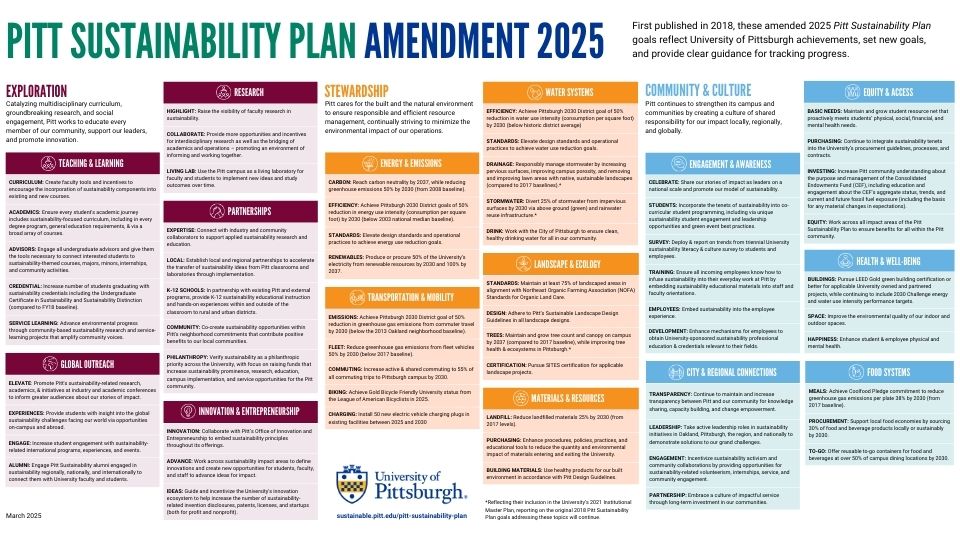
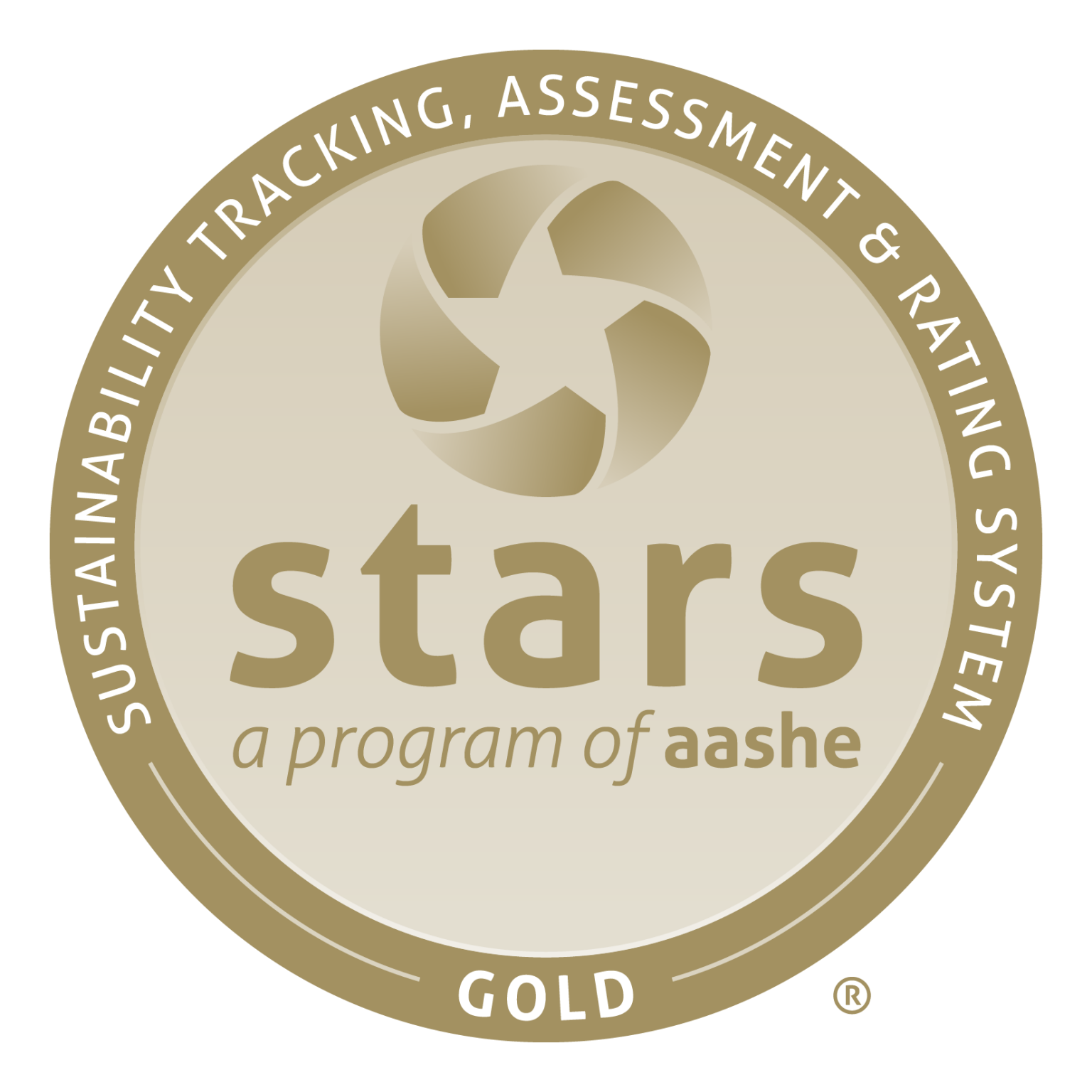
University of Pittsburgh achieves its second AASHE STARS Gold designation.
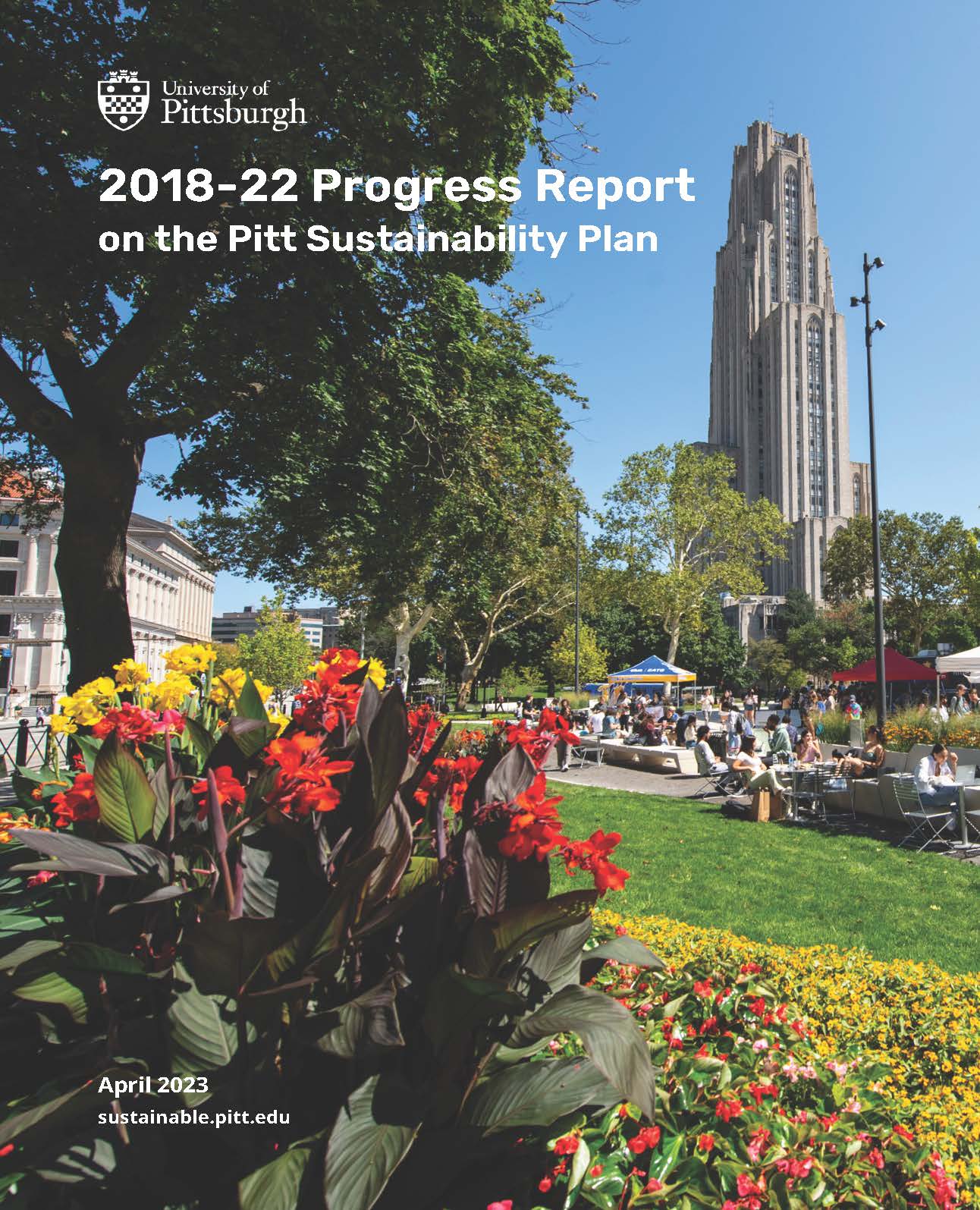
2018-22 Progress Report on the Pitt Sustainability Plan published, recognizing the University’s collective progress on each of the Pitt Sustainability Plan’s 68 distinct and ambitious goals.
University of Pittsburgh becomes the first Platinum Sustainable Pittsburgh Workplace! Pitt is a proud past winner in the University division of all other Sustainable Pittsburgh workplace challenges.
The University of Pittsburgh is proud to rank #34 of U.S. institutions and #126 globally in the inaugural rankings (out of 700 universities) in the inaugural QS World University Rankings in Sustainability (focused on the social and environmental sustainability performance in higher education institutions globally).
The Provost’s Faculty Ad Hoc Committee for Sustainability publishes its report recommending creation of a University-wide Sustainability Institute.
The University of Pittsburgh releases its first “Pitt Climate Action Plan” charting a course to carbon neutrality by 2037.
The University’s Office of Finance releases the “Inaugural Consolidated Endowment Fund Environmental, Social and Governance Report and publishes a summary of University ESG investing consideration and progress to-date.
The Pittsburgh campus is recognized a Tree Campus by the Arbor Day Foundation for the first time (for 2021 activities).
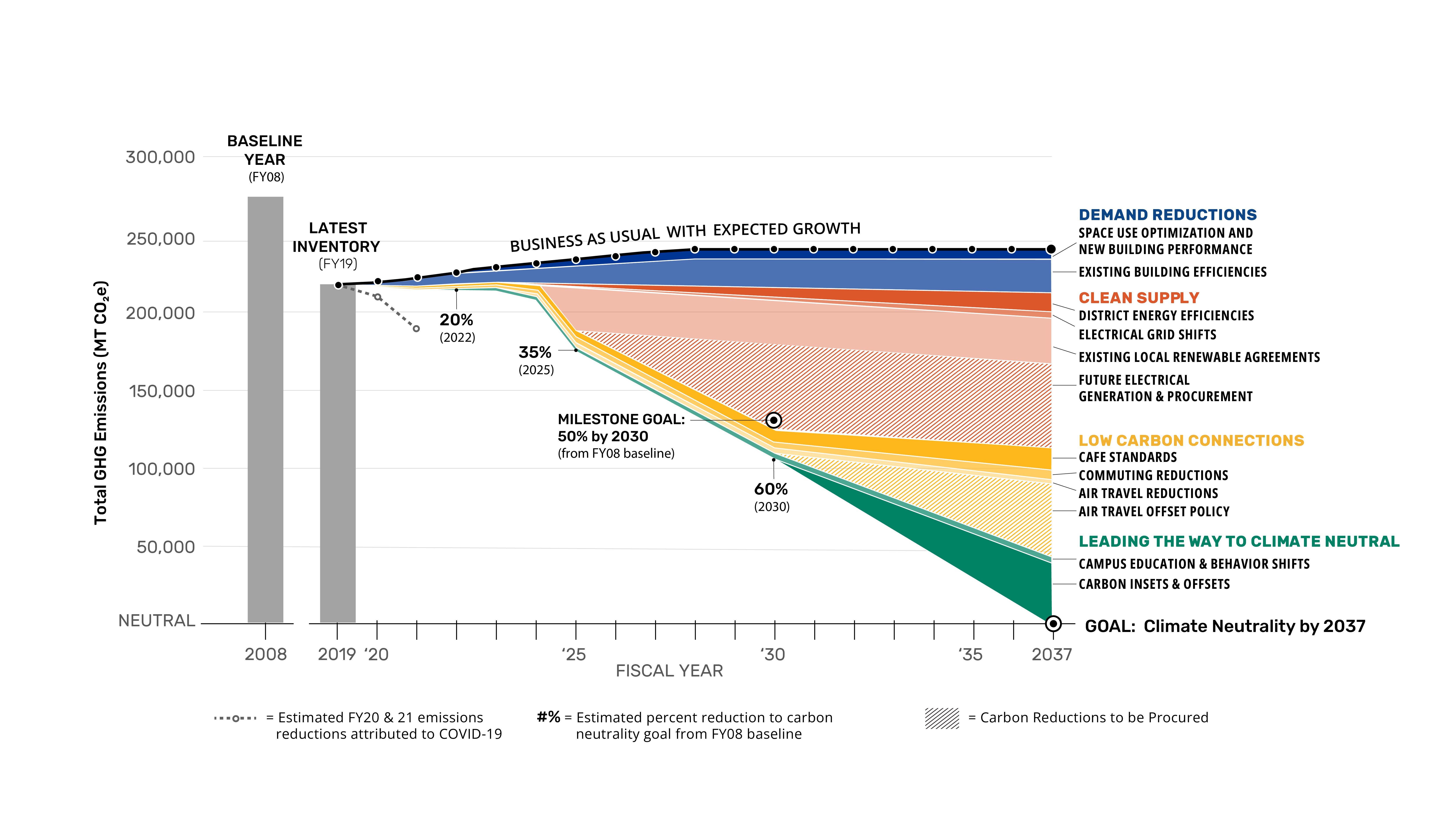

University of Pittsburgh achieves its first AASHE STARS Gold designation.
Board of Trustees Ad Hoc Committee on Fossil Fuels discloses that Pitt’s endowment will have no private fossil fuel investments and only 1% fossil fuel exposure (or less) by the end of 2035.

The University of Pittsburgh commits to becoming carbon neutral by 2037.
Pitt launches textile recycling for its Pittsburgh campus.
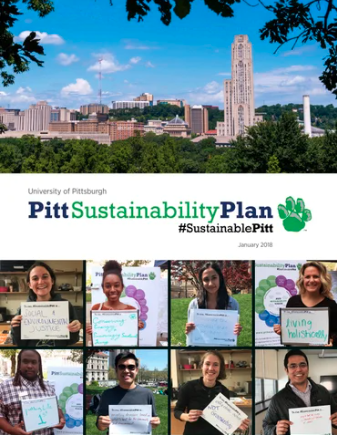
First “Pitt Sustainability Plan” is unveiled.
Office of Sustainability is founded and University’s first Director of Sustainability is hired to oversee Plan implementation.
Pitt achieved AASHE STARS Silver, Bike Friendly University Bronze, and became an EPA Green Power Partner.
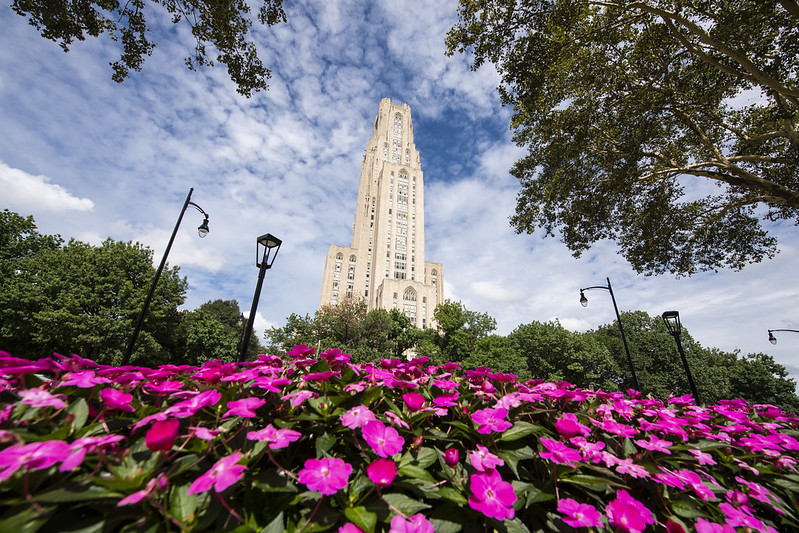
Chancellor Gallagher creates the University of Pittsburgh’s first centralized “University Sustainability Committee” created to establish cross-functional representation across faculty, staff, and students across the University.
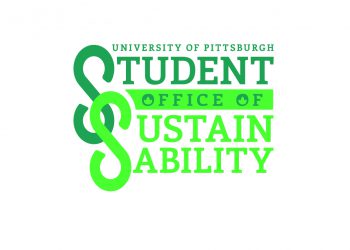 The University of Pittsburgh's Student Office of Sustainability is founded as an active contributor and voice in fostering awareness of sustainability throughout the Pitt community.
The University of Pittsburgh's Student Office of Sustainability is founded as an active contributor and voice in fostering awareness of sustainability throughout the Pitt community.
The University of Pittsburgh is a Founding Property Partner of the Pittsburgh 2030 District’s Oakland boundary, committing to measured building performance of 50% reductions in energy use, water consumption, and transportation emissions by the year 2030 (below baselines). These international 2030 Challenge goals became the basis of the 2018 Pitt Sustainability Plan.
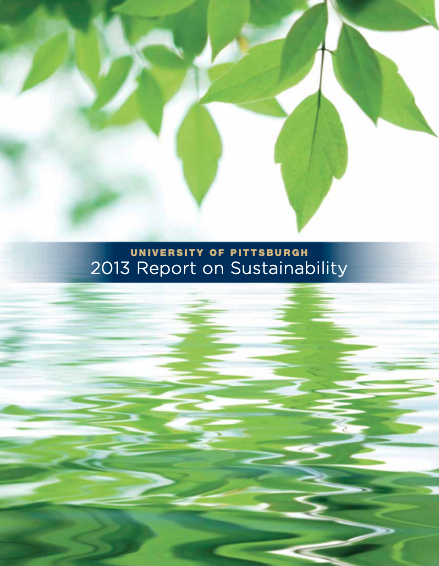
The University publishes its inaugural "Report on Sustainability" to highlight sustainability efforts and achievements across campus.
First Pitt Greenhouse Gas (GHG) Inventory is published, setting fiscal year 2008 as baseline year for the Pittsburgh campus, along with emissions reductions goals. The GHG inventory for the Pittsburgh campus has been updated for FY2011, 2014, 2017, 2019, and annually since; it is updated annually moving forward.
Pitt’s University Senate issues a “Statement on Sustainability.“
University establishes the Mascaro Center for Sustainable Innovation, which now spearheads University-wide sustainability research and education programs.
University of Pittsburgh is one of the original signatories of the Talloires Declaration, which supports mobilizing the resources of higher education for sustainability. The Taillores Declaration is a “10-point action plan for colleges and universities committed to promoting education for sustainability and environmental literacy. The Declaration is a consensus statement originally authored by 31 university leaders and international environmental experts representing 15 nations from the global North and South. Those present signed the Declaration and proposed to disseminate the document for widespread endorsement.”
Pitt Surplus is founded, creating a home for collecting and reselling or responsibly disposing of University items (including furniture, equipment, electronics, batteries, toner cartridges, and much more).
The University of Pittsburgh celebrates the first Earth Day by sponsoring an Environmental Teach-In with Carnegie Mellon University and Duquesne University (via Documenting Pitt Archives).
